Law & Religion Conferences 2011
5-8 January 2011. Association of American Law Schools Annual Meeting, “Core Educational Values: Guideposts for the Pursuit of Excellence in Challenging Times,” held in San Francisco
8 January 2011. Sixth Annual Conference on Christian Legal Thought, sponsored by the Lumen Christi Institute and held in San Francisco
13 January 2011. International Symposium on “Religious Diversity and the European Workplace,” organized by the University of Leuven’s Institute for Migration Law…
Interdisciplinary Conference on Sharing Sacred Space – Rome, December 2011
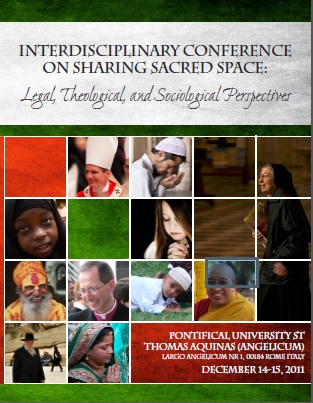
An interdisciplinary conference “Sharing Sacred Space: Legal, Theological, and Sociological Perspectives,” was held 14-15 December 2011 at the Pontifical University of St. Thomas Aquinas (Angelicum) in Rome.
The conference was co-organized by the Interdisciplinary Program in Law and Religion, Columbus School of Law, The Catholic University of America and the International Center for Law and Religion Studies, Brigham Young University, J. Reuben Clark Law School, United States, in addition to the Angelicum’s The John Paul II Center. Additional sponsors were the International Foundation for Interreligious and Intercultural Education (IFIIE), Italy, and the Richard L. Evans Chair of Religious Understanding, Brigham Young University.*
The program featured experts in Christian, Islamic, and Jewish traditions, scholars in law, philosophy, history,…
Professor Clark Presents Discussion Series Lecture, 1 December 2011
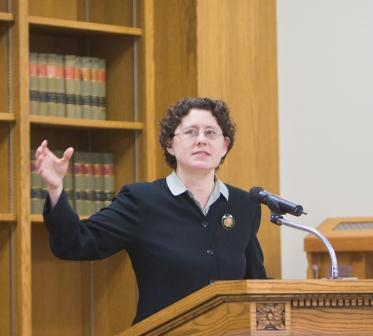
Professor Elizabeth A. Clark, Associate Director of the International Center for Law and Religion Studies and the Center’s regional advisor for Central and Eastern Europe, presented the final lecture in the first International Religious Freedom Discussion Series on Thursday, 1 December 2011 in Room 472 of the J. Reuben Clark Law School at Brigham Young University.
- Download the mp4 video of the presentation here.
- Download the PowerPoint Presentation here.
Professor Clark’s lec ture, “Recent Legislative Trends Affecting Religious Freedom in Eastern Europe and Central Asia,” addressed continuing and even increasing restrictions on religious freedom, including increased registration requirements, requirement of “religious expertise” by state bodies, and limitations…
Religion and Human Rights Conference – 24-25 October 2011 in Oslo, Norway
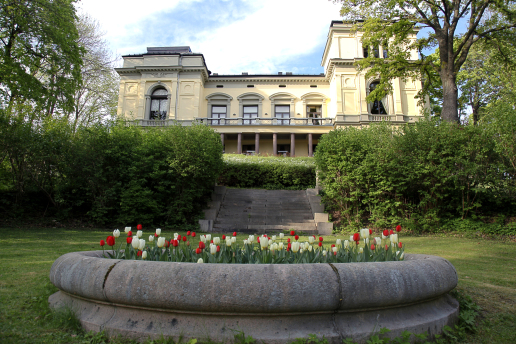
“Religion,” an international symposium held 25-25 October 2011 at the Norwegian Academy of Science and Letters in Olso, focused on discussion of religion as actually conceived of in contemporary societies. What distinguishes religion from non-religion? According to Professor Jan Terje Faarlund, chair of the organizing committee, participants were to focus on discussion of “cognitive and neurological processes that contribute to create religion as a human phenomenon,” looking nto the relationship between “religion” and national identity, taking into account that one function of religions is to create distinctions between groups and societies.
Opening remarks at the conference were given by Professor Øyvind Østerud, President, The Norwegian Academy of Science and Letters. Presenting on Monday, 24 October, were Armin W. Geertz, Aarhus University, Section for the Study of Religion on “What is religion? Recent cognitive and neuroscientific insights in the cultural sciences”; Halvor Moxnes, the Faculty of Theology, University of Oslo, will address “Religion and national identity: Early Christianity as a model for European nationalism”; W. Cole Durham, Jr., the International Center for Law and Religion Studies and Susa Young Gates Professor of Law at Brigham Young University, “The place of the right to freedom of religion or belief in the constellation of human rights”; and Gwénaële Calvès, Institut d’études politiques (IEP) de Paris, “Does freedom of religion entail freedom to discriminate? European Perspectives on a judicial dilemma.
Tuesday’s presenters were Sindre Bangstad, University of Oslo, “The ‘religious’ and the ‘secular’: On what poststructuralist anthropology gets right, and what it gets wrong”; and Knut Lundby, Department of Media and Communication, University of Oslo, “Mediatization of religion: Transformations of religion in media-saturated societies.”
The Norwegian Academy of Science and Letters, founded in 1857, is a non-governmental, nation-wide, and interdisciplinary body which embraces all fields of learning. The main purpose of the Academy is the advancement of science and scholarship in Norway. The Academy provides a national forum of communication within and between the various learned disciplines, and it represents Norwegian science in relation to foreign academies and international organisations.
Professor Smith Participates in Campus Ethics Conference at Penn State
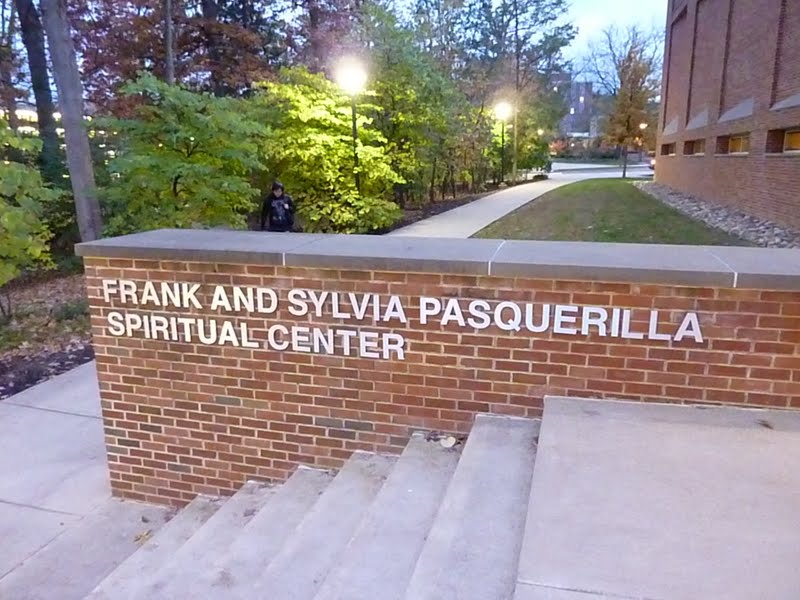
Professor Robert T. Smith, Managing Director of the International Center for Law and Religion Studies at Brigham Young University, spoke at the conference “Filling the Void: Meeting the Ethical Needs of Students.” The conference was sponsored by the Penn State Center for Ethics & Religious Affairs and was held on 20 October 2011 at the Pasquerilla Spiritual Center – Eisenhower Chapel, at Pennsylvania State University. The conference focused on the topics: Can we have religious/spiritual organizations on campus? Do we need a multi-faith center to accommodate religion and spirituality? and What are other campuses…
Religion in the Social Transition of Contemporary China, 13-14 October 2011
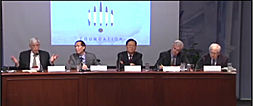
Scholars from China and the United States met at the Woodrow Wilson International Center in Washington, D.C., for a two-day conference, 13 & 14 October 2011, on the topic Religion in the Social Transition of Contemporary China. The event, a collaboration of the Wilson Center’s Kissinger Institute on China and the United States and the Asia Research Center Foundation, examined “this critical and timely topic” through the varying perspectives of the distinguished participants.
“The rapid growth of religious activity in China, especially among Christians but including other religions as well, raises profound questions about the relationship of religion to government, its impact on society, and its potential effects…
Professor Scharffs Participates in Constitutional Law Congresses in Turkey
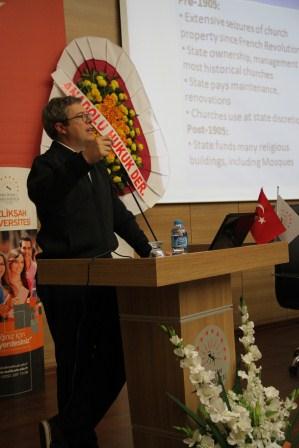
BYU Law School Professor and Center Associate Director Brett G. Scharffs presented papers comparing French and U.S. approaches to separation of religion and the state at two international conferences in Turkey in October 2011.
The first conference, held in Istanbul on October 7-8, 2011, an International Congress on Constitutional Law, “Deliberative / Pluralistic Constitution,” was sponsored by the Boğaziçi Lawyers Association, the bar association of Istanbul. The purpose of the Congress was to create a forum for discussion and debate about the primary issues involved in the proposed new constitution of Turkey. Professor Scharffs presented the same paper at a second conference, Turkey’s New Constitution, sponsored by and held at Melikşah University in Kayseri in central Turkey on October 10, 2011.
Professor Scharffs’ paper was entitled, “France and the United States: Two Models and Mythologies of Separation of Religion and the State (Neither of Which Involves Separation).” In the…
Professor Smith on “How an Attorney Can Further Religious Freedom”

In an event held on 6 October 2011 in connection with the Washington, DC Colloqiuim on Religion Policy and the Second International Religious Liberty Award Dinner, Professor Robert T. Smith, Managing Director of the International Center for Law and Religion Studies addressed members of the Mid-Atlantic Chapter of the J. Reuben Clark Society on the topic “How an Attorney Can Further Religious Freedom,” explaining some current and critical threats to religious freedom and outlining how his hearers could help.
“The work of religious freedom requires the efforts of many dedicated men and women who join together in diverse ways,” said Professor Smith, who recommend the words of Steve Jobs in a commencement address at Stanford University: “Your time is limited, so don’t waste it living someone else’s life. Don’t be trapped by dogma — which is living with the results of other people’s thinking. Don’t let the noise of others’ opinions drown out your own inner voice. And most important…
Becket Fund Founder Seamus Hasson Receives 2011 Religious Liberty Award
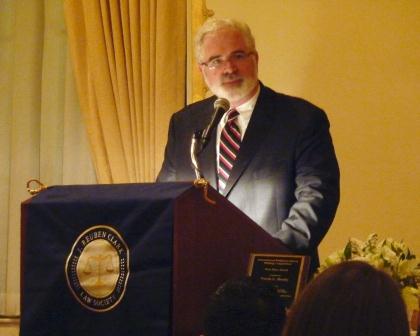
Jordan Pendergrass
Kevin J. “Seamus” Hasson, founder of the Becket Fund for Religious Liberty, has successfully defended religious liberty in the courts of law, the court of public opinion, and the academy. His accomplishments, both in the United States and abroad, have benefitted the religious rights of people from “A to Z,” from Anglicans to Zoroastrians. In recognition of his work and great character, Mr. Hasson received the International Religious Liberty Award on 6 October 2011 in Washington, DC. As Mary Ann Glendon, Learned Hand Professor of Law at Harvard University has observed, “no persons will be more deserving of celebration than the truly great lawyers of the Becket Fund and its…
The Eighteenth Annual International Law and Religion Symposium, “Religious Freedom in a Pluralistic Age: Trends, Challenges, and Practices,” 2-4 October 2011
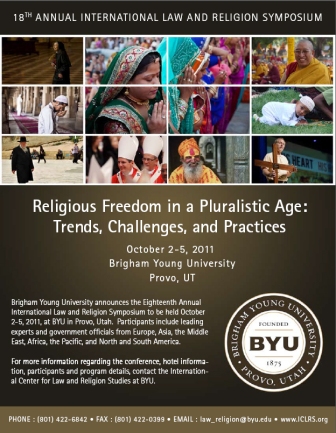
The 18th Annual International Law and Religion Symposium of the International Center for Law and Religion Studies of the J. Reuben Clark Law School took place on the campus of Brigham Young University in Provo, Utah, from October 2 through 4, 2011. This year’s conference, “Religious Freedom in a Pluralistic Age: Trends, Challenges, and Practices,” welcomed more than 75 participants, representing 37 countries.
The Symposium opened in the Law School’s Moot Court Room on Sunday evening, October 2, with an address by this year’s distinguished keynote speaker, Zakeria Mohammed Yacoob of the Constitutional Court of South Africa. Sessions continued through Monday and Tuesday and concluded with remarks by ICLRS Director Professor W. Cole Durham, Jr. and a number of other Symposium delegates.
Summaries of some presentations, prepared by volunteers in attendance, are available on this site’s Annual Symposium page. Delgates’ presentations, including video…
Washington D.C. Colloquium on U.S. Religion Policy, October 2011
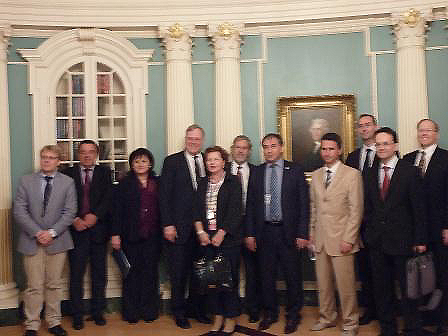
The International Center for Law and Religion Studies organized a Religion Policy Colloquium in Washington, D.C. during 6-7 October 2011. Center Director Cole Durham and Managing Director Robert Smith traveled with nine scholars from eight European countries to Washington, where they visited the Berkley Center for Religion, Peace, and Word Affairs at Georgetown University, the headquarters of the Becket Fund for Religious Liberty, the U.S. State Department Office of International Religious Freedom, and the United States Commission on International Religious Freedom. While there they participated in a Liberty Awards Dinner, co-sponsored by the ICLRS and the Mid-Atlantic Chapter of the J. Reuben Clark Law Society and honoring Becket Fund founder Kevin J. “Seamus” Hasson.
OSCE Human Dimension Implementation Meeting in Warsaw, Sept – Oct 2011
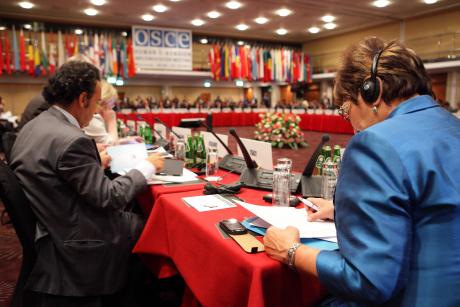
The Organization for Security and Cooperation in Europe (OSCE) held its Human Dimension Implementation Meeting in Warsaw during 29 September – 7 October 2011. Among the topics addressed during the course of the meeting was the registration of religious communities.
W. Cole Durham, Jr. of the International Center for Law and Religion Studies, J. Reuben Clark Law School, Brigham Young University, and Renata Uitz, an expert in the freedom of religion or belief at the Central…
Professor Doxey Keynote Speaker at JRLCS Leadership Conference
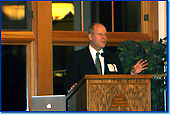
Heidi Carmack
Professor Gary B. Doxey addressed the J. Reuben Clark Law Society as the keynote speaker for the annual JRCLS leadership conference at Aspen Grove on 29 September 2011. Professor Doxey, Associate Director for the International Center for Law and Religion Studies at Brigham Young University, invited listeners to consider the decay of religious freedom throughout the world and issued…
Professor Smith at UVU Interfaith Meeting and JRCLS Salt Lake Chapter
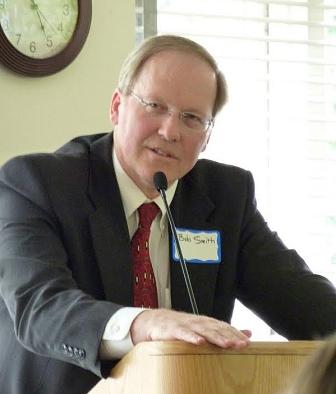
Professor Robert T. Smith, Managing Director of the International Center for Law and Religion Studies at Brigham Young University, participated in two recent events. As a member of the panel “Religion in Politics, Professor Smith attended the first meeting of the Utah Valley University Interfaith Student Association, on 20 September 2011 at Utah Valley University in Orem, Utah. Other panel participants were Mark Hausam, Professor of Philosophy at UVU, Daniel Haas, Minister at Provo Community United Church of Christ, and Elaine Ball, Executive Director – Utah Coalition of Reason.
On 22 September 2011, Professor Smith made a presentation to the Salt Lake Chapter of the J. Reuben Clark Law Society, “Render Unto Caesar That Which is Caesar’s: How an Erosion of Religious Freedom Could Jeopardize the Historical Tax Privileges of Churches,”…
2nd ICLARS Conference, Religion and Constitution – Santiago, 8-10 September 2011
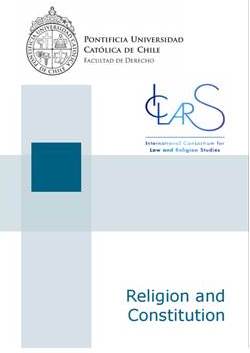
The Second Conference of the International Consortium for Law and Religions Studies (ICLARS), was held 8-10 September 2011 at Pontifica Universidad Católica in Santiago, Chile. ICLARS is an international network of scholars and experts of law and religion. It began in 2007, with the aim of providing a place where information, data, and opinions could be exchanged among members and made available to the broader scientific community. To this end, ICLARS organizes conferences and publishes a newsletter. The First ICLARS Conference, “Law and Religion in the 21st Century: Relations between States and Religious Communities,” was held in Milan in 2009; its proceedings have been published by Ashgate.
The theme of this second conference was Religion and Constitution, and speakers from South and North America, Europe, Africa, Israel, China, and Nepal addressed the topic, in…
Smith Delivers Religious Freedom Lecture on Tax Privileges of Churches
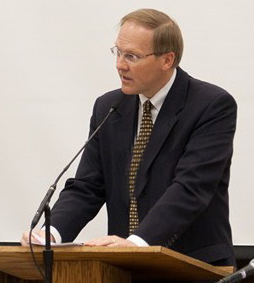
Professor Robert T. Smith, Managing Director of the International Center for Law and Religion Studies (ICLRS) of the J. Reuben Clark Law School, presented the Fourth Lecture of the Religious Freedom Discussion Series sponsored by the ICLRS in cooperation with the Community Service Outreach Committee of the J. Reuben Clark Law Society. Professor Smith’s address, “Valuing Religion: Historical Tax Privileges of Churches in a Modern Secular Age,” was delivered on 15 September 2011 at the Law School on the campus of Brigham Young University and was available via webinar to listeners worldwide.
Professor Smith has served as ICLRS Managing Director since 2006. In this role he oversees the activities of the Center, including supervising…
Second ICLARS Conference, Religion and Constitution, Chile, September 2011
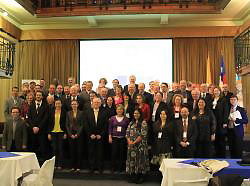
The International Consortium for Law and Religion Studies (ICLARS) held its Second Conference, Religion and Constitution, in Santiago, Chile, 8-10 September 2011. The conference addressed such issues as the role for religions in contemporary society, how much States are prepared to accept the growing relevance of religions in their legal systems, whether constitutions provide adequate instruments to govern the role of religions in the public square, and the religion and equal treatment in China and Nepal. The conference was opened by outgoing (and now Honorary) ICLARS President, Professor Silvio Ferrari. Distinguished participants came from South and North America, and from Europe, Israel, Africa, China, and Nepal.
[From the ICLARS report by Ana Maria Celis:]…
Cole Durham Named ICLARS President at Conference in Santiago, Chile – September 2011
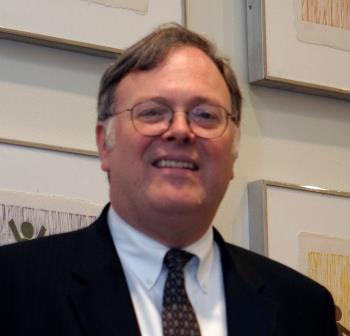
Professor W. Cole Durham, Jr., Director of the International Center for Law and Religion Studies (ICLRS) at Brigham Young University, was installed as President of the International Consortium for Law and Religion Studies (ICLARS) at the Second ICLARS Conference, held 8-10 September 2011 in Santiago, Chile. Professor Durham succeeds Professor Silvio Ferrari of Università degli Studi di Milano. Professor Robert Smith, ICLRS Managing Director, serves as member of the ICLARS Secretariat.
ICLARS is an international network of scholars and experts of law and religion. It began in 2007, with the aim of providing a place where information, data, and opinions could be exchanged among members and made available to the broader scientific community. To this end, ICLARS…
Durham at Conference on Religion as a Social Institution – Moscow, September 2011
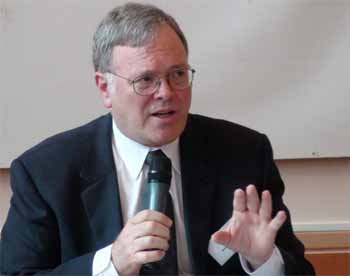
J. Reuben Clark Law School Professor Cole Durham presented a paper at the International Academic Conference, “Religion as a Social Institution,” held in Moscow on 5-6 September 2011. The conference was organized by the Center for Religious Studies “ReligioPolis” (Moscow), the Department of Sociology and Administration of Social Processes, Academy of Labor and Social Relations (Moscow), the International Center for Law and Religion Studies (Brigham Young University, Provo, Utah), the Department of Religion and Religious Studies, Philosophy Faculty (St. Petersburg State University, Russia), and the Coordinating Counsel for CIS and Baltic Countries on Theological and Practical Religious Studies (Kyiv, Ukraine).
In a paper entitled “Institutional Conscience,” Professor Durham examined religion and the generation of social capital, the importance of expressive institutions, dilemmas of conscience faced by religious institutions, and erosion of standards of review of religious claims, against the background of transformational shifts in the understanding of human rights, a “reasoned analysis of the principles of secularism, secularity and religiosity from the position of case law.”
In addition to addresses by scholars from Russia, Ukraine, Poland, and the United States, the conference featured a session “Confessions Talks: Social Projects of Religious Organizations of Russia,” with participants from the following groups: the Russian Orthodox Church, the Union of Muftis of Russia, All-Russia Council of Jewish Religious Congregations, the Roman Catholic Church, the Union of Evangelical Christians-Baptists of Russia, Seventh-day Adventists Church, The Church of Jesus Christ of Latter-day Saints, the International Society for Krishna Consciousness, and the Church of Scientology.
Second Summer Conference on Religion and the Rule of Law – Beijing, July 2011
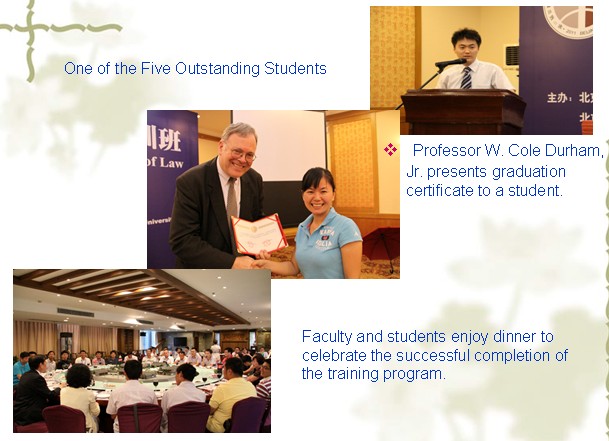
For a second summer, a number of foreign scholars traveled to China to participate in an intensive course on comparative and international law and religion. The 2011 Summer Training Program on Religion and the Rule of Law, held in Beijing from 17-31 July, was sponsored by Peking University Law School’s Center for Constitutional and Administrative Law, together with the Pu Shi Institute for Social Sciences, a Chinese think tank devoted to issues relating to religion and the rule of law.
Professors Brett Scharffs and Cole Durham of Brigham Young University’s International Center for Law and Religion Studies once again coordinated the academic component of the program…
Professor Doxey Presents Historical Perspectives on Religious Freedom
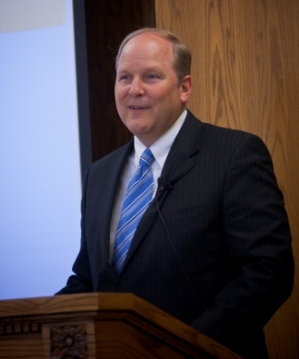
Professor Gary B. Doxey presented on 23 June 2011 the third lecture in the bi-monthly Religious Freedom Discussion Series, sponsored by the International Center for Law and Religion Studies in connection with the Community Service Outreach Committee of the J. Reuben Clark Law Society. Professor Doxey’s address, “Historical Perspectives on the Rise of Religious Freedom,” was delivered at the J. Reuben Clark Law School on the campus of Brigham Young University and broadcast as a live Webinar.
- Technical difficulties during the presentation prevented a recording of the orginal lecture
- A PowerPoint presentation is available here.
In his address, Professor Doxey gave an overview of the main features of the conventional narrative of the rise of religious freedom, beginning with Christian…
Religion and Rule of Law Conference in Vietnam, 16-18 June 2011
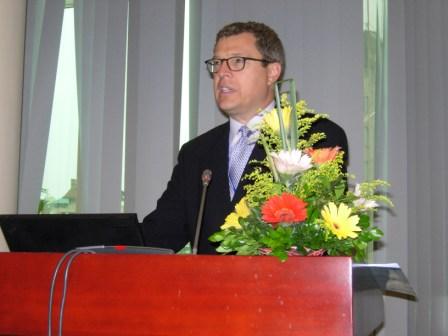
On June 16-18, 2011, Center Director Professor Cole Durham and Associate Director Professor Brett Scharffs participated in a conference on Religion and the Rule of Law in Southeast Asia in Hanoi, Vietnam. The conference was the third in a series of conferences held in Vietnam under the co-sponsorship of the Institute of Religious Studies of the Vietnamese Academy of Social Sciences (VASS), the Vietnam-U.S.A. Society, the Institute for Global Engagement, and BYU Law School’s International Center for Law and Religion Studies.
Scholars and government officials from Vietnam were joined at the conference by scholars and lawyers from Brunei, Canada, the People’s…
Law and Religion Conference at Melbourne Law School – 13, 15-16 July 2011

The International Center for Law and Religion Studies co-hosted a public lecture and conference on Law and Religion with the Centre for Comparative Constitutional Studies, Melbourne Law School, held at Melbourne Law School on 15-16 July. The outstanding group of speakers included experts from Australia and 12 other countries, including the United States, Malaysia, China, Italy, Norway, Argentina, Spain and Belgium. On Thursday 13 July 2011, Professor John Witte, one of the world’s…
OSCE Capacity- Building Seminar for Kyrgyzstan in Istanbul, 14-15 June 2011
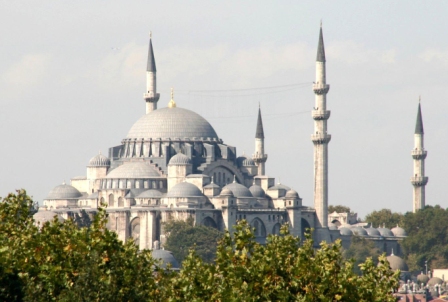
Professor W. Cole Durham, Jr. co-organized and led the “Capacity Building Seminar on Freedom of Religion or Belief” for the State Committee on Religious Affairs of Kyrgyzstan, on behalf of the OSCE Office for Democratic Institutions and Human Rights (ODIHR) and in co-operation with the OSCE Centre in Bishkek. Durham, who is a member of the ODIHR Advisory Panel of Experts on Freedom of Religion or Belief, assisted with the writing and preparation of the materials for the seminar, which was held in Istanbul, Turkey, 14-15 June 2011.
Scharffs at Indonesian Conference on Shari’a and Human Rights, 13-16 June 2011
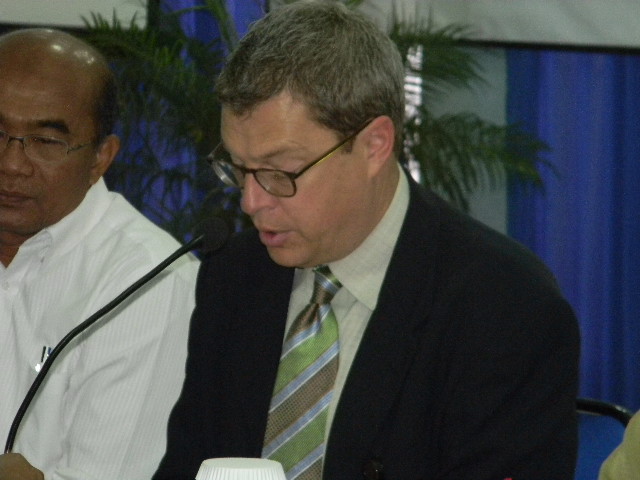
Professor Brett Scharffs, Francis R. Kirkham Professor of Law at the J. Reuben Clark Law School and Associate Director of the International Center for Law and Religion Studies at BYU, participated in an Expert Conference on the Master Level Course on Shari’a and Human Rights: Background and Core Issues in Contemporary Indonesia, held at the University of Muhammadiyah in Malang, Indonesia on June 13-16, 2011. This was the latest in a series of conferences held in Indonesia designed to discuss the relationship between Islamic law and human rights, and to help lay the groundwork for designing a high-quality master-level course suitable for teaching at Islamic universities in Indonesia about the intersections, harmonies and conflicts that arise between Shari’a and human rights, particularly in the Indonesian context.
The conference was sponsored by the Centre for the Study of Religion and Multiculturalism (PUSAM), a postgraduate program at the University of Muhammadiyah Malang (UMM), one of the leading private Islamic universities in Indonesia. It was co-organized by the Oslo Coalition and the Norwegian Centre for Human Rights (NCHR), University of Oslo, Norway, in cooperation with the International Center for Law and Religion Studies at BYU.
Foreign participants at the conference included leading experts in both international human rights and Islamic law, including Dr. Mohammad Hashim Kamali, President and CEO of the Institute for Advanced Islamic Studies in Kuala Lumpur, Malaysia, Dr. Lena Larsen, Programme Director of the Oslo Coalition of the Norwegian Centre for Human Rights, Dr. Tore Lindholm, professor of philosophy at the University of Oslo and member of the Oslo Coalition, Dr. Abdu Saeed, professor of Islamic studies at the University of Melbourne, Professor Scharffs, and Aksel Tomte, representing the Indonesia program of the Oslo Coalition/Norwegian Center for Human Rights.
More than forty professors from Indonesia representing fields including Islamic studies, law, human rights, sociology and history participated in the conference, including Professor Syamsul Arafin, Univeristy of Muhammadyah Malang (UMM), who chaired the organizing committee. Papers were presented by Professor Hafid Abbas, National University of Jakarta, Professor Amin Abdullah, professor of Islamic studies, Islamic University of Yogykarta (UINJ), Professor Musdah Mulia, Islamic University of Jakarta (UIN Jakarta), and Professor M. Latief Fauzi, Indonesian Islamic University (UII).
Professor Scharffs presented a paper, “Challenges to Effective Protection of Freedom of Religion or Belief in Highly Diverse Settings,” which outlined a range of social attitudes towards religion that might prevail in a society, the types of public policies and legal mechanisms for regulating law that typically follow from those attitudes, and the distortions and challenges that arise at each of these point along the spectrum of attitudes and policies. He then suggested specific strategies for mitigating the problems that arise that are helpful in effectively protecting freedom of religion and belief, including:
• recognizing the value and positive social effects of pluralism,
• creating presumptions for freedom within a human rights framework and imposing limitations upon religious freedom only when genuinely necessary,
• focusing upon ways in which the needs and interests of local religious majorities as well as minorities can be recognized and respected,
• recognizing that in a global world everyone is a religious minority and understanding the benefits that flow from adopting policies that genuinely reflect the experience of religious minorities within our societies,
• having attitudes towards religious change that view it not as an act of treason or rebellion, but a normal aspect of human moral agency, freedom and dignity,
• utilizing ordinary laws to deal with issues that arise from religious extremism, rather than targeting religion, and
• adopting policies and attitudes that reflect the Golden Rule (which is common in nearly every religion and non-religious philosophical tradition), and engaging in constructive dialogue where each of us holds ourselves accountable to act in a way that is consistent with our own professed beliefs.
The conference was opened by Dr. Latipun, Director of Postgraduate Studies at the University of Muhammadiyah Malang, and Dr. Mutiadjir Effendy, Rector of the University of Muhammadiyah Malang.
Professor Scharffs also gave a welcoming address in which he discussed the history of the drafting of the Universal Declaration of Human Rights, including numerous specific contributions of delegates from Western as well as non-Western countries, including Carlos Romulo of the Philippines, who was not deterred by his “supposed” inferior status and described his persistence as becoming a “nuisance, a gadfly, a pest. I prowled corridors, buttonholed delegates, cornered unwilling victims in hotel lobbies and men’s rooms.”
Scharffs particularly noted the contributions of the Chinese Delegate, P.C. Chang, who suggested the insertion of the Chinese concept ren, to compliment reason in Article one of the UDHR, which states, that all human beings are “endowed with reason and conscience (ren) and should act towards one another in a spirit of brotherhood.” Scharffs noted that it is unfortunate that ren, which in Chinese literally means two-man-mindedness, and can be understood as empathy, sympathy, consciousness of one’s fellow men, or compassion, was translated as “conscience,” not because conscience is unimportant, but because it, like reason, is an inward-looking human capacity, whereas ren captures the other-regarding human capacity that is equally fundamental to being human.
Translating ren correctly, Scharffs suggested, could impact the way we think about human rights in numerous ways, including that it would mean that the other, including religious minorities, would always be kept in mind as policies are formulated and implemented. Second, it would emphasize that when we think and speak of human rights, we must also speak and think in terms of human, relational duties – not just the duties that you owe me when I have a right, but the duties that I have that accompany my having a right.
The conference ended with a discussion of the objectives and curriculum of the proposed master level course on Shari’a and Human Rights, and a plan to begin teaching the course on a trial basis at the University of Muhammadiyah Malang in 2012.
Institute for Human Rights and Democracy Third “Jornadas” in Peru, June 2011
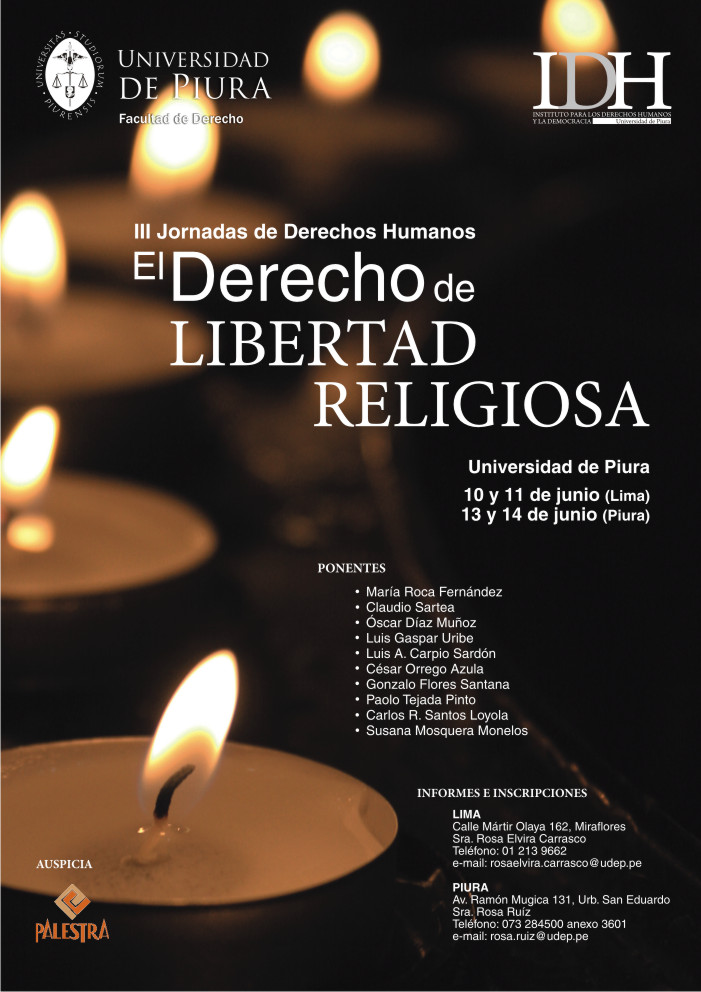
10-11, 13-14 June 2011 – Lima & Piura, Peru
The Institute for Human Rights and Democracy of the Universidad de Piura (Peru) is dedicating its third “Jornadas” (conference or workshop) to religious liberty. The program includes formal presentations and a roundtable discussion. Presenters, who include some of the most important voices and scholars on the subject in Peru, will discuss legal as well as comparative, religious and philosophical perspectives. One of the motivating reasons for this conference is the adoption late last year of a comprehensive new Peruvian law on religious liberty and religious organizations. This law, Ley 29635, is the culmination of more than a decade of study,…
Professor Durham Presents Papers in Hungary, June 2011

Professor W. Cole Durham, Jr. presented three papers in Hungary during June 2011, in addition to his term as visiting professor at Central European University in Budapest, where he taught an Advanced Seminar on Freedom of Religion.
1-3 June: Presented “Asymmetries in the Proection of Freeomd of Religion or Belief” at the Conference on the Christian-Jewish-Muslim Interfaith Dialogue, sponsored by the State Secretariat for Religious, Minority, and Civil Society Affairs of the Ministry…
Multiculturalism Symposium Honors Professor Tore Lindholm in Oslo, 26 May 2011
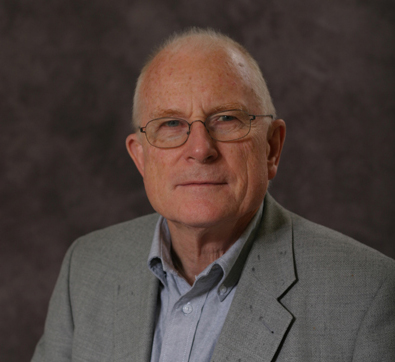
Two of the more than one dozen papers delivered in as many countries by Cole Durham during the spring of 2011 were given during the course of “Multiculturalism and Human Rights – a Symposium in Honor of Tore Lindholm,” held 26 May 2011 in Oslo, Norway. The symposium, which was conducted in English because of the participation of Professor Durham and Professor Hurst Hannum of Tufts University, was sponsored by the Human Rights and Diversity Working Group of the Norwegian Centre for Human Rights (NCHR) of the Faculty of Law of the University of Oslo. Noting the 70th birthday of Professor Lindholm – “one of the…
Durham Attends ODIHR/OSCE Legislative Guidelines Meetings in Warsaw
Professor Cole Durham, a member of the Advisory Panel of Experts on Freedom of Religion or Belief of the Office for Democratic Institutions and Human Rights (ODIHR) of the Organization for Security and Co-operation in Europe, participated in the ODIHR/OSCE Legislative Guidelines meetings in Warsaw, Poland, on 23-24 May 2011.
Religious Freedom Conference in Kyiv, 20-21 May 2011
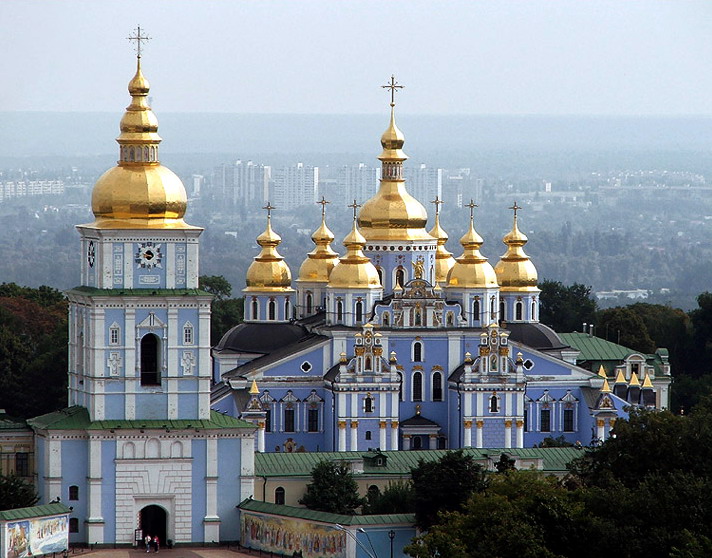
A conference “Freedom of Religion and Interfaith Dialogue: A Global Dimension and Local Impressions,” co-sponsored by the Coordinating Council of CIS and Baltic States on Theoretical and Practical Religion Studies, the International Center for Law and Religion Studies (ICLRS) of the J. Reuben Clark Law School at Brigham Young University, the Department of Religious Studies of the G.S. Skovoroda Institute of Philosophy of the National Academy of Science of Ukraine, the Ukrainian Association of Researchers of Religion, the Center for Religious Information and Freedom, the Ukrainian Religious Liberty…
Professor Durham Presents Papers in Belgrade, Serbia, 18-19 May 2011
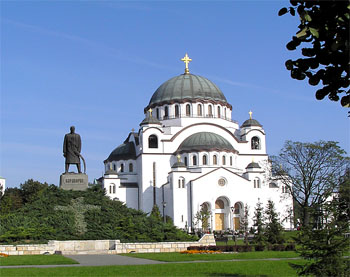
On 18 May 2011 Professor W. Cole Durham, Jr., presented a paper “The Serbian Religion Law in International and Comparative Perspective,” at the Symposium on the Occasion of Five Years of the Enactment and Implementation of the Law on Churches and Religious Communities, sponsored by the Ministry of Religion and Diaspora, Faculty of Law of the University of Belgrade and the Konrad Adenauer Stiftung, Belgrade. The following day, Durham spoke at the conference The Position of Churches and Religious Communities in Society at the Theological Faculty, University of Belgrade, delivering the paper “Recent Developments in Religious Freedom Law.”
Scharffs at Istanbul International Congress on Constitutional Law, 11-14 May 2011
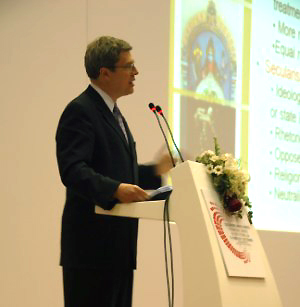
Brett G. Scharffs, Francis R. Kirkham Professor of Law and Associate Director of the International Center for Law and Religion Studies at Brigham Young University, participated in the International Congress on Constitutional Law held in Istanbul, 11-14 May 2011. The primary purpose of the Congress was “to provide academic and civilian contributions to the formation of a civilian constitution” in Turkey. To this end some 50 Turkish scholars and goverment leaders joined with some 40 foreign participants to discuss constitutional law issues from a wide variety of perspectives. Professor Scharffs’ paper was entitled “Secularity or Secularism: Two Competing Visions for the Relationship between Religion and the State in the New Turkish Constitution.”…
Center Represented at India Religion and Governance Conference, 9-10 May 2011
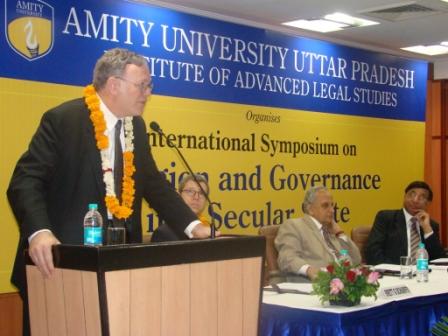
Professors Cole Durham and Brett Scharffs, Director and Associate Director of the International Center for Law and Religion Studies, along with Marshall Morrise, the Center’s Website Development Manager, traveled to India to participate with the Center’s honored friend and advisor, Professor Dr. Tahir Mahmood, and other internationally renowned religious freedom scholars in the conference “Religion and Governance in a Secular State,” co-sponsored by the Center and the Amity Institute of Advanced Legal Studies and held 9-10 May 2011 at the Amity Campus, Sector – 125 in Noida.
Participants were welcomed by Dr. Ashok K. Chauhan, Founder President, Amity Group, who said that Amity would like to…
Professors Durham and Scharffs Participate in Conference on the Emerging New Constitution in Nepal, 5-7 May 2011
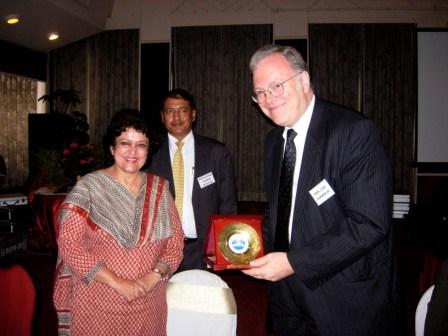
International Center for Law and Religion Studies Director Cole Durham and Associate Director Brett Scharffs participated in a conference in Kathmandu, Nepal on 5-7 May 2011, on The Emerging New Constitution in Nepal. The conference convened in the shadow of a looming deadline of 28 May 2011 for the Constituent Assembly to agree on a new draft constitution. The conference was held to discuss several of the most important unresolved issues, including federalism, judicial independence and accountability, forms of governance, and human rights, including women’s rights and freedom of religion and belief.
The conference capstone was an invitation for the foreign participants to meet with his Excellency, Dr. Ram Baran Yadav,…
Dr. David Kirkham Delivers Second Religious Freedom Discussion Lecture
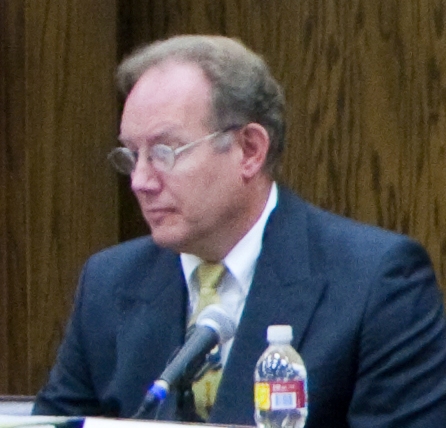
Dr. David M. Kirkham presented the second lecture in the bi-monthly Religious Freedom Discussion Series, sponsored by the International Center for Law and Religion Studies in connection with the Community Service Outreach Committee of the J. Reuben Clark Law Society. Dr. Kirkham’s lecture, “Islam and Human Rights: Europe and Beyond,” was webcast on 4 May 2011 from the J. Reuben Clark Law School on the campus of Brigham Young University.
- Access recordings in two formats: mp3 audio and mp4 video.
- Download the PowerPoint Presentation here.
Dr. Kirkham is Senior Fellow for Comparative Law and International Policy and Regional Advisor for the European…
Professor Durham Addresses Universal Rights Conference in Rome, 30 April 2011
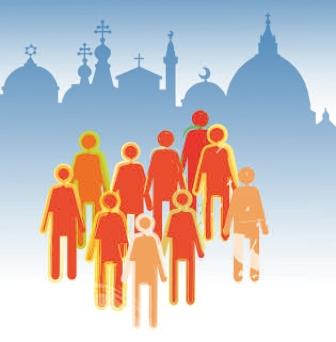
Professor W. Cole Durham, Jr. was among the presenters at the Seventeenth Plenary Session of the Pontifical Academy of Social Sciences held in Rome from Friday 29 April through Tuesday 3 May 2011. The Session, organized under the direction of Mary Ann Glendon, Learned Hand Professor of Law at Harvard University Law School and former U.S. Ambassador to the Holy See, was devoted to the topic Universal Rights in a World of Diversity: The Case of Religious Freedom. “Religious freedom claims the Academy’s attention not only because it is central to Catholic thought,” notes Professor Glendon, “but because the dilemmas and controversies in that area are illustrative of the current crisis of the entire human rights project.”…
LDS International Society 22nd Annual Conference – Provo, 4 April 2011
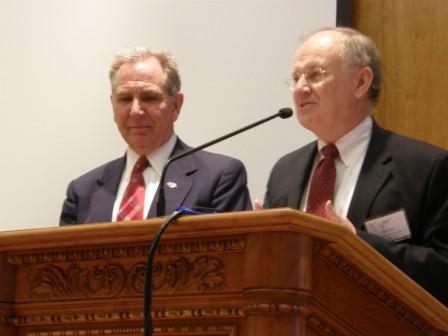
The LDS International Society held its 22nd Annual Conference at the Hinckley Alumni and Visitors Center on the campus of Brigham Young University in Provo, Utah, on 4 April 2011. The theme of the day-long conference was “The Erosion of Religious Liberties: Impact on the International Church.” Delivering the conference keynote address was Michael K. Young, president and chancellor of the University of Utah. Following his address, President Young received the Society’s 2011 Distinguished Service Award from William F. Atkin, International Society board member and associate general counsel, The Church of Jesus Christ of Latter-day Saints. Also addressing the conference was Dr. John Graz, Secretary-General of the International Religious Liberty Association (IRLA). Dr. Graz…
Durham at Social Trends Institute Conference – London, 17-19 March 2011

ICRLS Director Professor W. Cole Durham, Jr. joined other international religious freedom experts, in presenting a paper at the conference “Equality, Freedom of Conscience, and the Common Good,” sponsored by Social Trends Institute, London, England, 17-19 March 2011. Durham’s paper, presented in collaboration with Dr. Peter Perkoff of Brunel University…
Brett Scharffs on Challenges to Freedom of Religion and Belief in a Global Setting – Las Vegas, 11 March 2011
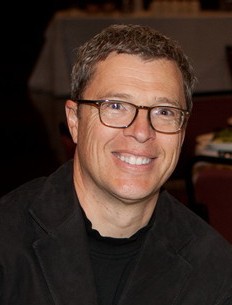
BYU Law School Professor and ICLRS Associate Director Brett Scharffs spoke at a J. Reuben Clark Society event in Las Vegas, Nevada on Friday, 11 March 2011. Professor Scharffs presented a tour d’horizon about emerging challenges to freedom of religion and belief around the world. Professor Scharffs focused on five key issues: conscientious objection, religious autonomy, defamation of religion, religion in the public square, and the increased frequency of conflicts between equality and freedom.
Scharffs also summarized recent social science research data that shows that 52 percent of countries in the world have very high, high, or moderate restrictions on freedom of religion, and that 86% of the population of the world lives in countries…
Professor Durham Delivers First Religious Freedom Discussion Series Lecture
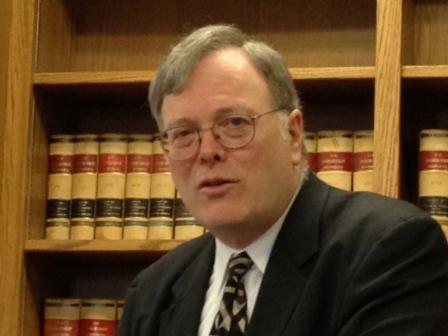
Professor W. Cole Durham, Jr., director of the International Center for Law and Religion Studies at Brigham Young University, delivered the first lecture in the Religious Freedom Discussion Series sponsored by the Center with the Community Service Outreach Committee of the J. Reuben Clark Law Society (JRCLS). Professor Durham’s address, “Current Developments in International Religious Freedom,” was delivered on 3 March 2011 and webcast live from the J. Reuben Clark Law School in Provo, Utah.
…
Religion and the Legislative Regime for the New Dominican Republic, Conference in Santo Domingo, 24-25 February 2011

Professors Cole Durham and Gary Doxey, participated in the conference Religion and the Legislative Regime for the New Dominican Republic, co-sponsored by the International Center for Law and Religion Studies, Catholic University of Santo Domingo, and El Consorcio Latinoamericano de Libertad Religioso and held in Santo Domingo, Dominican Republic, 24-25 February 2011. Other presenters at the conference included Ana María Celis-Brunet, President of the Consorcio Latinoamericano de Libertad Religiosa and Professor of Canon Law at Pontificia Catholic University of Chile, and professors Javier Martínez-Torrón of Spain, Guillermo García Montúfar of Peru, and Juan Navarro Floria of Argentina. Representatives of the Catholic University of Santo Domingo included Vice Rector Francisco Cruz Pascual and Dr. Pena Conce, Dean of the Faculty of Law. Representing the government of the Dominican Republic were Former Deputy Mr. Carlos Peña, Senate Vice President Cristina Lizardo Mezquita, and Mr. Francisco Paredes, Director General of Cults, Ministry of Education.
Professor Brett Scharffs Featured at Santa Clara Law School Religion and International Law Symposium, 18-19 February 2011
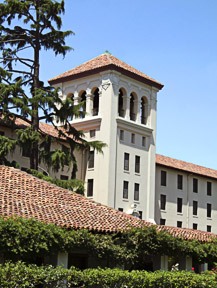
ICLRS Associate Director Brett Scharffs was one of four featured presenters at a Symposium on Religion and International Law at Santa Clara University School of Law, held on February 18-19, 2011. Professor Scharffs’ paper was entitled, “Equality in Sheep’s Clothing: The Implications of Anti-Discrimination Norms for Religious Autonomy.” Three Commentators responded to Scharffs’ paper, Asifa Quraishi (Assistant Professor of Law at the University of Wisconsin Law School), Johann Van der Vyver (Professor of International Law and Human Rights at the Emory University School of Law, and former professor of law at the University of the Witwatersrand in Johannesburg, South Africa), and Tad Stahnke (Director of Policy and Programs at Human Rights First).
In his paper, Professor Scharffs discussed three recent cases that illustrate the ongoing tension between equality norms and religious…
JRCLS Annual Conference: Liberty through the Rule of Law, 17-19 February 2011
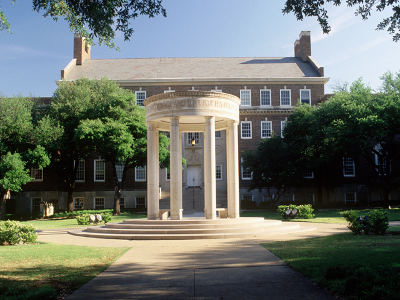
The 2011 J. Reuben Clark Law Society Annual Conference was held Thursday through Saturday, 17-19 February, at Southern Methodist University in Dallas, Texas. Speakers and panels addressed the theme “Liberty through the Rule of Law.” Speakers included The Honorable Harriet Miers, Partner at Locke Lord and former White House Counsel; The Honorable Judge Michael Mukasey, former U.S. Attorney General; U.S. Ambassador Robert King, Special Envoy for North Korean Human Rights Issues; Elder…
Center Associate Director Brett Scharffs Delivers Closing Remarks at Family Law Symposium, 28 January 2011
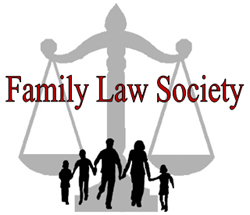
BYU Law Professor Brett G. Scharffs delivered concluding comments and reflections at a Symposium on Belonging, Families, and Family Law, held at BYU Law School on 28 January 2011. The Symposium brought together leading scholars from around the world to discuss issues relating to belonging, families, responsibilities and boundaries, and children, family recognition and exemptions.
Scharffs’ paper, “Echoes from the Past: What We Can Learn about Unity, Belonging and Respecting Differences from the Flag Salute Cases,” addressed the principal conference themes – belonging, families and recognition, and the issue of exemptions from general and neutral laws – through the prism of the great constitutional debate in the 1940’s about mandatory participation in saluting the flag and reciting the Pledge of Allegiance. Scharffs contrasted the 1940 case, Gobitis v. Minnersville School District, where the Supreme Court, focusing on the state’s right to determine appropriate means to inculcate patriotism in children, upheld a state statute compelling flag salutes in public schools that made no exemption for religious objectors. In that case, the Court emphasized that this was a general secular regulation, and that national unity, which it said underpinned national security, was a constitutional value of the highest order. Only three years later, the Supreme Court completely reversed course. In the 1943 case, West Virginia State Board of Education v. Barnette, the Court held that when state officials compelled participation in the flag salute and pledge, they “transcended constitutional limitations on their power and invaded the sphere of intellect and spirit which it is the purpose of the First Amendment to our Constitution to reserve from all official control.”
Scharffs suggested that these cases reflected two very different visions of the American creed and of how to inculcate citizenship and belonging, about the respective roles of the family and the state in the education of children, and about how to accommodate conscience and difference. The lessons from these cases, Scharffs’ argued, resonate deeply with current controversies that arise in family law, including the question of whether religious exemptions should be available to those with conscientious objections to facilitating gay marriages.
The articles from the Symposium, including Professor Scharffs’ contribution, will be published by the BYU Journal of Public Law in May 2011.
The Symposium was sponsored by the Family Law Society and organized by BYU Law Professor Lynn Wardle. Participants were from Yale Law School (Robert A. Burt), Washburn Univeristy Law School (Linda D. Elrod), Washington & Lee Law School (Robin Fretwell Wilson),Tokyo University Law School (Akira Morita), Notre Dame Law School (Margaret F. Brinig), University of Iowa Law School (Ann Laquer Estin), Howard Law School (Laurence C. Nolan), George Mason University Law School (Helem M. Alvaré), Boston College Law School (Scott FitzGibbon), and Ben Guiron University (Ya’ir Ronen).
Brett Scharffs on Flag Salute Cases, Published in BYU Journal of Public Law

As the concluding speaker at the symposium “Belonging, Families, and Family Law,” held 28 January 2011 at the BYU Law School, Professor Brett G. Scharffs delivered a paper “Echoes from the Past: What We Can Learn about Unity, Belonging, and Respecting Differences from the Flag Salute Cases.” The symposium proceedings have been now published as Volume 25, No. 2 of the Brigham Young University Journal of Public Law.
In summarizing his paper, Professor Scharffs reiterated recent observations…
“Religious Diversity in the European Workplace,” International Symposium in Belgium, 13-14 January 2011
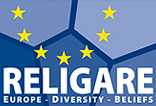
ICLRS Director Cole Durham chaired a session at the international Symposium “Religious Diversity and the European Workplace,” which convened at the Law Faculty of Catholic University of Leuven, Belgium, on 13 January 2011. The event was organized by the University’s Institute for Migration Law and the Anthropology of Law under the umbrella of FP7 Religare. Religare, “Religious Diversity and Secular Models in Europe: Innovative Approaches to Law and Policy, ” is a 3-year EU 7th Framework Program…
Religion in American Politics and Society: A Model for Other Countries?

1 March 2011 – Georgetown University
Is the dominant American approach to religion, society, and the state worthy of emulation in other countries? This question will be addressed on Tuesday, 1 March 2011 at 9:00 AM in the Copley Formal Lounge, Georgetown…
“A Call for International Religious Freedom”: Nootbar Institute 2011 Conference
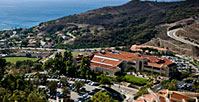
25 February 2011 – Pepperdine University, Malibu, California
The Nootbaar Institute is pleased to announce its 2011 conference, “A Call for International Religious Freedom.” On Friday, 25 February 2011, Pepperdine University School of Law will host some of the world’s…
“Religious Engagement in the 21st Century” — IGE Global Leadership Forum 2011
From the website of the Institute for Global Engagement:
Join us for Global Leadership Forum 2011, “Religious Engagement in the 21st Century: Implications for Allies & Global Security.” The event is co-hosted by the Institute for Global Engagement and Old Dominion University, co-sponsored by the U.S. Army Chaplaincy Center for World Religions, and supported by the Aimee and Frank Batten Jr. Foundation. The forum begins on the evening of 20 September and ends at noon on 21 September. It is open to the public and does not require registration. It will be held at Old Dominion University in Norfolk, Virginia at the Webb University Center (20 September)…